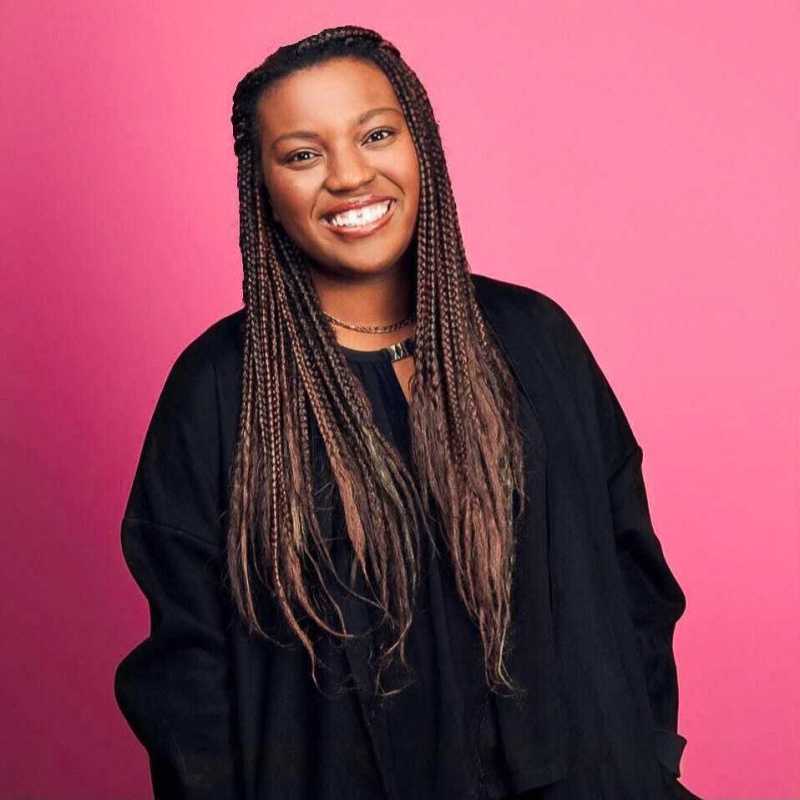In her freshman year of high school, Elizabeth Davis ’17 joined the robotics team. But she was never interested in programming the robot itself, leaving it to the other members to handle.
Little did Davis know, in just over a decade she would have a computer science degree from Stanford, several tech startups under her belt and a place on the Forbes 30 under 30 list in the social media category.
Davis graduated from Stanford in 2017, but her career in entrepreneurship started in her junior year when she founded a startup app called Greo.
“It was late 2015, the 2016 election was looming,” Davis said. “And there were some huge conversations happening at Stanford.”
As debates on the Israel-Palestine conflict, sexual harassment concerns and the Black Lives Matter movement picked up momentum in the United States, a new anonymous messaging app called YikYak was gaining popularity on college campuses. With the spread of political polarization on college campuses, YikYak became a platform for many toxic conversations, including racism directed toward many student body leaders and activists, Davis said.
Davis and her co-founders quickly realized there was a need for a platform that would allow people to “talk across the aisle effectively and come to an understanding” before these damaging conversations became ubiquitous on college campuses. So, Davis said, “we decided to go the opposite way.”
The founders created Greo, an online platform that only allows for face to face video sharing — no comments or texts allowed. Davis was the co-founder and chief technology officer.
“There’s just more empathy that can happen,” Davis said. “When you’re on camera you’re less likely to just be horrible and mean, because people know who you are.”
One of Davis’ co-founders, Brandon Hill ’16, said that Davis was not only a strong engineer, but that she also put unique effort into understanding and satisfying the consumer perspective.
“There’s so much where her quick thinking and work ethic really changed the trajectory of the company,” Hill said.
Following the 2016 election, political polarization only grew, and Davis and her co-founders eventually sunsetted the project. However, Davis did not let go of her goal to foster more intimate discussions around politics. In 2018, she launched Stashe, an app that allowed users to share articles with just their closest friends, facilitating more intimate, informed discussions. Another of her projects, TLDR — an app that allowed users to save, categorize and discuss articles easily — was featured in the top 50 social networking apps in the Apple App Store.
Now, Davis is a product manager for Facebook Fundraisers. She builds tools that allow users to start their own fundraisers, raising money for causes that are important to them. Just in 2020, Davis launched a fundraiser that raised over $30 million to help fight the Australian bushfires. She also organized business fundraisers for small business relief during the COVID-19 pandemic and racial justice campaigns on Juneteenth.
“When there’s a given moment, we make sure that we put the nonprofits that are most related to that cause right in front of you, so that everyone on Facebook knows to donate to them,” Davis said.
Davis’ team plans to have bigger brands donate the first five dollars to small fundraisers, helping campaigns kick off with a lot more momentum and popularity.
According to Davis, this type of scalable impact is the most important part of how technology can be useful in the coming decades.
“The reason I like working in technology is because it operates at such a large scale that it’s so important to leverage it,” Davis said. “I find causes that I care most about and engineer ways to allow lots of different people to get involved in both the cause and conversation.”
At Facebook, one of Davis’ coworkers is her former Stanford roommate, Karen Lu ’17. Lu says that they work to build products that help people achieve something they already want to do, and then find a seamless, efficient and delightful way to execute it.
“I think that’s the kind of product thinking that Elizabeth really excels at,” she said.
As a freshman in high school, Davis could never have imagined pursuing a career in tech; she even had a 50-year plan to become a lawyer and eventually make it onto the Supreme Court. But by taking advantage of unexpected opportunities throughout her career, Davis now finds herself in a much different place at 25 than she had ever thought possible.
And while Davis said she has learned never to chart too far in advance, Lu said that she sees a lot more in Davis’ future.
“She knows how to make the most of different experiences and have those experiences fit into whatever she’s putting her work into at the moment,” Lu said.
Contact Mimia Ousilas at mimiaousilas7 ‘at’ gmail.com.
